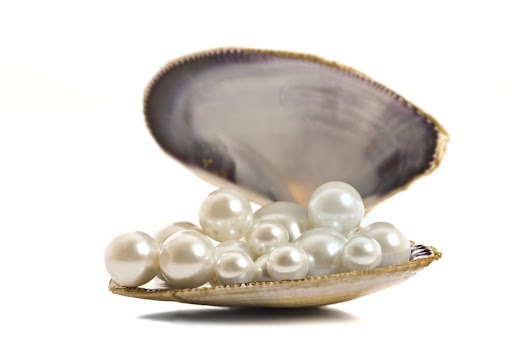What are the different types of pearls?
Pearls are one of the oldest and most desired gemstones in the world. They are highly sought after and greatly valued by many. Unique to other gemstones, pearls are formed organically in the sea, a natural phenomena that occurs as part of a mollusc shell’s defence mechanism against predators.
Pearls are a greatly versatile gemstone as they come in all shapes, sizes and colours. It is for this reason that they are popular within the jewellery scene and jewellery designers.
The history of pearls
Not only are pearls a highly valued, stunning gemstone, but they also have a rich history. It is believed that pearls have been traded for over 6,000 years, emphasising their timeless value.
First recorded in history by a Chinese historian in 2,206 BCE, pearls have been valued as gemstones for millennia. It is their infamous exquisite beauty and rarity which made pearls so sought after, leading them to become synonymous with wealth and status. Members of royal families would often be seen wearing large pearls for this reason; to establish their wealth and societal status.
Throughout the years, pearls have become wrapped up in many legends and mystical beliefs. Some stories say white pearls are tears shed by the Gods. One legend even claims that the tears Eve cried when she was banished from Eden turned to pearls!
Once a gemstone only attainable by royals and the extremely wealthy, over time they have become more affordable for the average person.
Different types of pearls
Despite appearing in a rich variety of sizes and shapes, the white and almost perfectly round gems continue to be the most popular. However, there are a variety of types of pearls.
Freshwater pearls
Freshwater pearls are one of the most commonly found pearls. They are often found in delightful white and pink shades, oozing with class and charm and they typically form a lot quicker than saltwater pearls. Freshwater pearls can come in different shapes and sizes, as well as unique textures, making them a favourite for jewellery designers.
Natural pearls
Natural pearls are harvested from the wild. They are extremely rare as only one in 10,000 mollusks produce a pearl in the wild. This is because, in today’s world, pearls are often cultured on farms, thus increasing the rarity of natural pearls. Furthermore, throughout history, many wild mollusks have been collected which has consequently meant that the population has dwindled. Today, natural gems in the sea are very uncommon and thus their market value is extremely high.
Exotic pearls
Tahitian pearls originally come from black lip oysters typically found in French Polynisian. Their colours are undoubtedly the most exotic; including shades of blue, green, grey, and black. Some believe that these pearls have healing powers and protect the wearer from negative energy, thus they are often given as a gift to broken hearted women.
South Sea jewels are revered for their golden colour that is considered extremely rare. These pearls are found in medium-sized 'gold-lipped' Pinctada Maxima oysters which are native to Indonesia.
Lastly, Akoya pearls. They come from the Pinctada Fucata oyster, which thrives off the coast of Japan in the Pacific. They can take anywhere from 6 months to 4 years to form, and thus, are highly valued and delicate.
Pearl jewellery
When you come to choose your jewellery, you may sway towards preferring uniquely textured pieces or brightly coloured pieces. Alternatively, you may prefer more classic pieces. The large market of pearls allows for everyone to find something they like, no matter the size, colour or texture.
Pearls are timeless and so, whatever your preference, they will last for a lifetime and are perfect for any occasion.
Here at Cuttings Jewellers and Pawnbrokers, we have a wide range of pearl jewellery. Whether it’s a brightly coloured pair of pearl earrings or a classic vintage pearl necklace, we have something for you. Shop our collection of pearl jewellery here.




